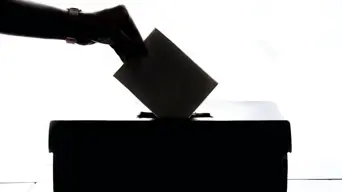Violence-hit Ecuador chooses next president
Sixteen candidates are vying to become president for the next four years, including hawkish young incumbent Daniel Noboa and his leftist opponent Luisa Gonzalez.

Picture: Unsplash.com
QUITO - Some 14 million Ecuadorans began voting Sunday to decide who will lead their violence-wracked Andean nation through its worst crisis in half a century.
Sixteen candidates are vying to become president for the next four years, including hawkish young incumbent Daniel Noboa and his leftist opponent Luisa Gonzalez.
The campaigns have been dominated by concerns about a moribund economy and cartel turf wars that have transformed Ecuador from one of the safest countries in the world into one of the most dangerous.
"We need to find a way of improving the situation in the country right now," said 26-year-old industrial designer Paula Carrion as she prepared to vote in Quito.
At rallies ahead of the poll, both candidates were shadowed by a phalanx of special forces and bodyguards, hoping to avoid a repeat of the 2023 election when a leading candidate was assassinated.
"We're only human, of course, you feel afraid," 47-year-old Gonzalez told AFP from her childhood home on the eve of the vote.
"There are intelligence reports that say there are risks and that they want to take my life, but there is a bigger challenge here. There is a challenge to transform the country."
She will have to dramatically outperform pre-election polls in order to beat Noboa - the son of a banana billionaire who himself ran for president five times without success.
At 37 years old, Noboa is one of the world's youngest leaders. He has bet his political future on a hardline approach to tackling crime.
With US drug users turning to opiates, Latin American cartels have focused heavily on supplying fast-growing cocaine markets in Europe, Australia and Asia via Ecuador's ports.
That trade has brought record rates of murder, kidnapping and extortion.
Noboa has responded by declaring a state of emergency, deploying the army across the country and gathering extraordinary executive powers to curb the violence.
He ordered the country's land borders with Colombia and Peru to be closed over the election period and the military has even been tasked with distributing ballot papers to 466 polling stations across the country.
Human rights groups believe the aggressive use of the armed forces has led to abuses, including the murder of four boys whose charred bodies were found near an army base.
"Ecuador is in a very difficult moment, I think in the worst crisis since we returned to democracy," said Leonardo Laso, a local political analyst, referring to a period of deep crisis almost half a century ago.
'DARK OUTLOOK'
The security crisis has hit an already spluttering economy, which likely entered a recession last year, and has scared away tourists and investors alike.
Noboa has been forced to turn to the International Monetary Fund to build a $4 billion fiscal war chest.
Easing fears that she may scrap that deal if elected, Gonzalez told AFP that the IMF was "welcome" to help, so long as it does not insist on cuts that hit working families.
Her political mentor, Rafael Correa, pushed Ecuador into default in 2008, refusing to pay international creditors.
The country is also girding for the return of thousands of Ecuadorans who are expected to be deported from the United States under Donald Trump's policies - and a reduction in remittances which total about $6 billion a year.
"Our compatriots are now returning to the country again," said Vinicio Colcha, a 45-year-old merchant.
"Obviously, there is already unemployment and there will be more unemployment, more problems, more insecurity, everything in between. It is a dark outlook."
Voting is compulsory. Polls opened at 7:00 am local time and will close at 5:00 pm (1200 to 2200 GMT)
There will be an April 13 second-round runoff if no candidate gathers 50% of the vote, or 40% and is 10 points ahead of their nearest rival.